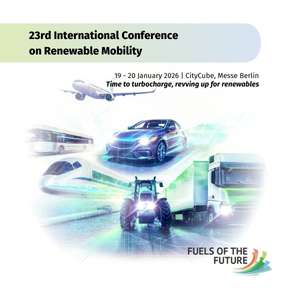€51 million funding boost in US biofuels drive
Biofuels are derived from renewable resources, and can power heavy-duty vehicles that are difficult to electrify with current technologies—including aircraft and ships to help accelerate America’s path to a net-zero emissions economy by 2050.
“Biofuels are one of our most promising paths to zero-carbon aviation and shipping, so it’s time to double down on R&D and begin to deploy these technologies at scale,” said Secretary of Energy Jennifer Granholm.
“This funding is critical for decarbonising the transportation sector—the largest source of our nation’s greenhouse gas emissions—and delivering good-paying union jobs and clean air and water to American communities.”
Biofuels are produced by converting biomass — made up of recently-living organic materials like crop waste, food waste, and algae — and other waste resources into a liquid fuel, which can serve as a low-carbon equivalent to fossil-based fuels such as gasoline, jet, and diesel fuel.
This investment will accelerate the deployment of bioenergy technologies and mobilise public clean energy investment in the biofuels, chemical, and agricultural industries, which can lead to new good-paying jobs across the bioenergy supply chain and increased investment in rural economies.
“On behalf of Airlines for America’s member airlines, we applaud Secretary Granholm and the DOE for helping to lead the way to a more energy secure and sustainable future, including through support for the further development and deployment of sustainable aviation fuel (SAF),” said A4A President and CEO Nicholas Calio. “We have made tremendous progress in developing safe and environmentally beneficial SAF, and to achieve our recently announced industry goal of having 2 billion gallons of cost-competitive SAF available to US airlines in 2030 as a waypoint for achieving net-zero carbon emissions by 2050, the nascent SAF industry needs just this kind of support.”











